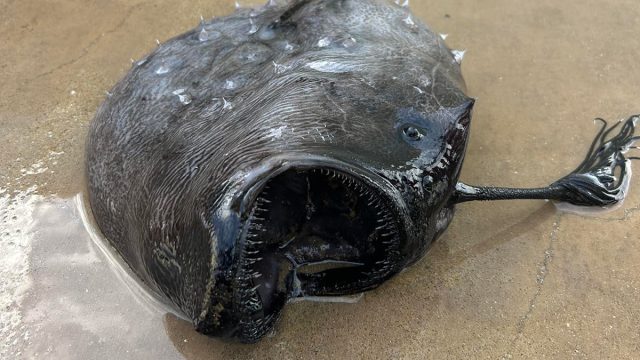Terrifying Razor-Toothed Deep-Sea Creature Washes Up Dead on Beach
The ghoulish Pacific Footballfish was discovered on Friday the 13th.
Friday the 13th has long been known as an unlucky day in Western superstition, happening at least once a year. While it has been popularized by the horror film franchise of the same name, it doesn’t take a masked murderer to creep people out on the day. In fact, this October, all it took was a scary-looking fish washing up on the shoreline.

A scary-looking, pitch-black fish with a long stalk on its head washed up on Crystal Cove State Park beach in Southern California Friday, October 13, officials announced days later in a Facebook post.
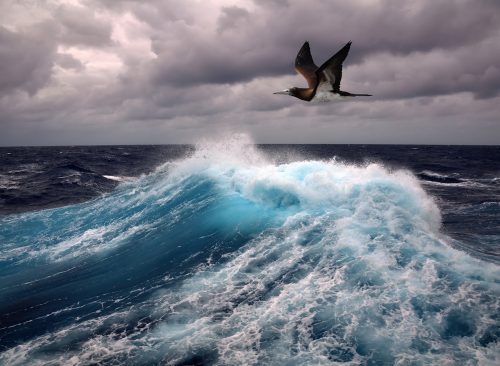
The odd-looking sea creature was a female Pacific footballfish (Himantolophus sagamius). They aren’t commonly found, as they usually live 2,000 to 3,300 feet below the Pacific Ocean.
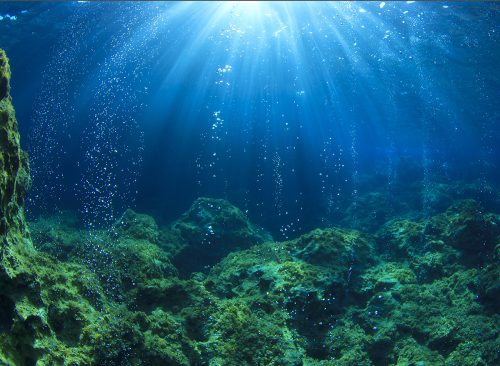
“To see an actual anglerfish intact is very rare and it is unknown how or why these fish ended up onshore,” Crystal Cove State Park officials wrote in a Facebook post.
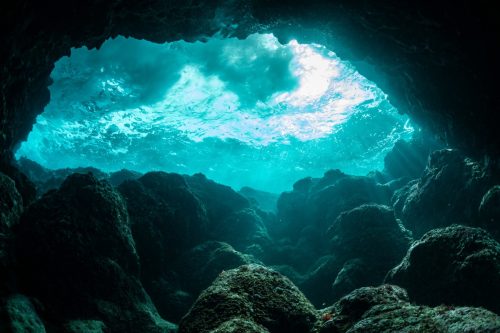
“Their teeth, like pointed shards of glass, are transparent and their large mouth is capable of sucking up and swallowing prey the size of their own body.”

“Only females possess a long stalk on the head with bioluminescent tips used as a lure to entice prey,” park officials wrote in the post.

According to the post, the males merge their bloodstreams with their host’s, “eventually coalescing with the female until nothing is left of their form but their testes for reproduction.”
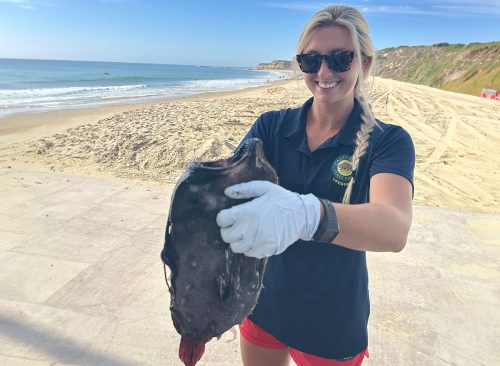
The dead fish was discovered by a seasonal lifeguard on Moro Beach close to the lifeguard headquarters, “just in time for Friday the 13th,” the officials wrote. The California Department of Fish and Wildlife later picked it up.
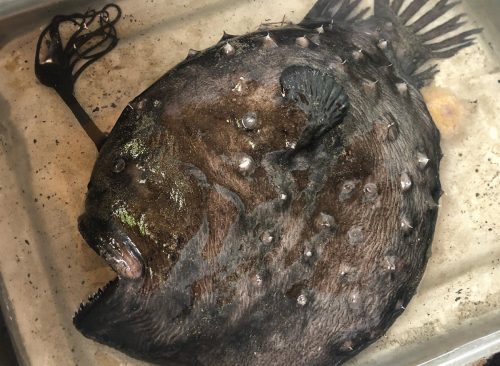
It measured about 14 inches (36 cm) from mouth to tail fin, Michelle Horeczko, a senior environmental scientist supervisor with the Department of Fish and Wildlife, revealed to the Los Angeles Times, adding that only 30 or so specimens of this species have been collected globally.
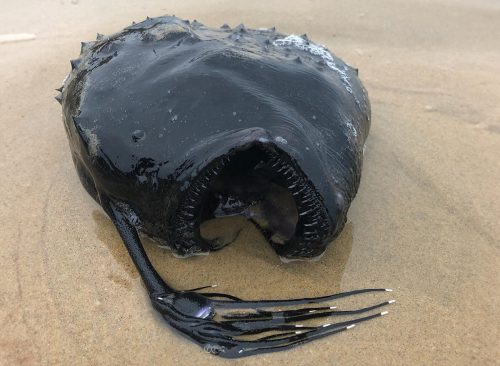
In May 2021, another fish of the same species was discovered at the same park. The post added that “seeing this strange and fascinating fish is a testament to the curious diversity of marine life lurking below the water’s surface in California’s marine protected areas.”
RELATED: Things You Should Never Do at the Doctor’s Office, Say Doctors
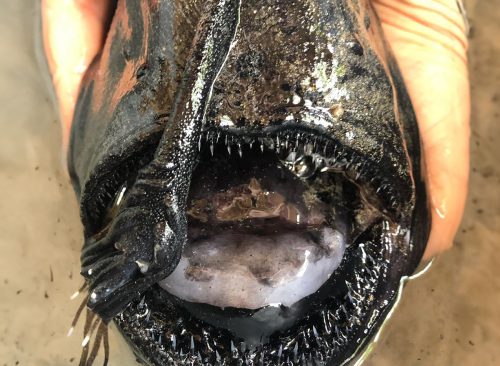
The fish is now at the Natural History Museum in Los Angeles – along with the 2021 specimen, “so that the specimen can be preserved and available for scientific research,” Horeczko said.
